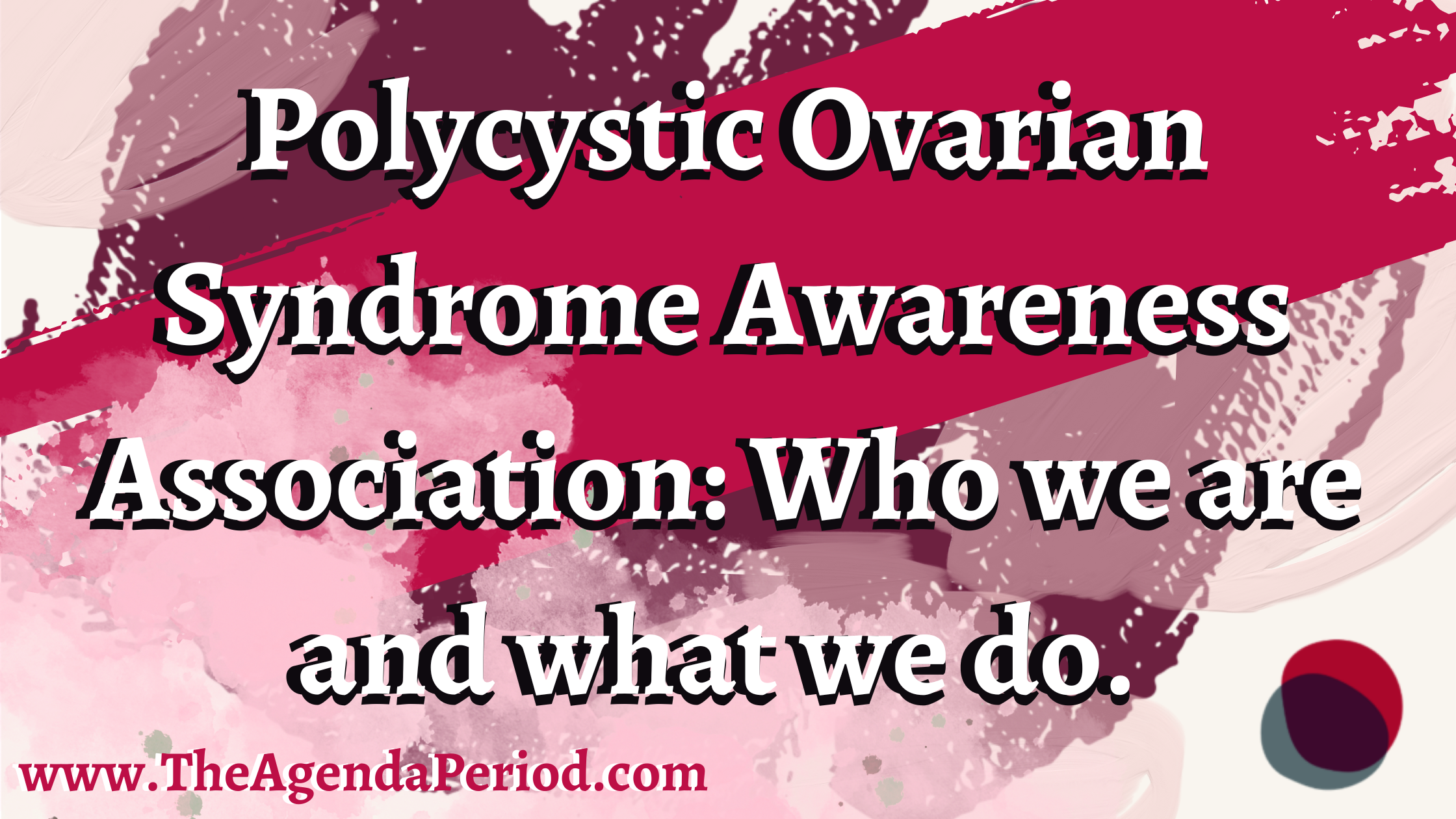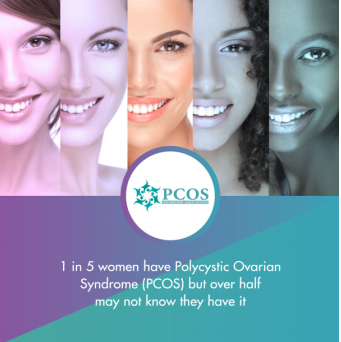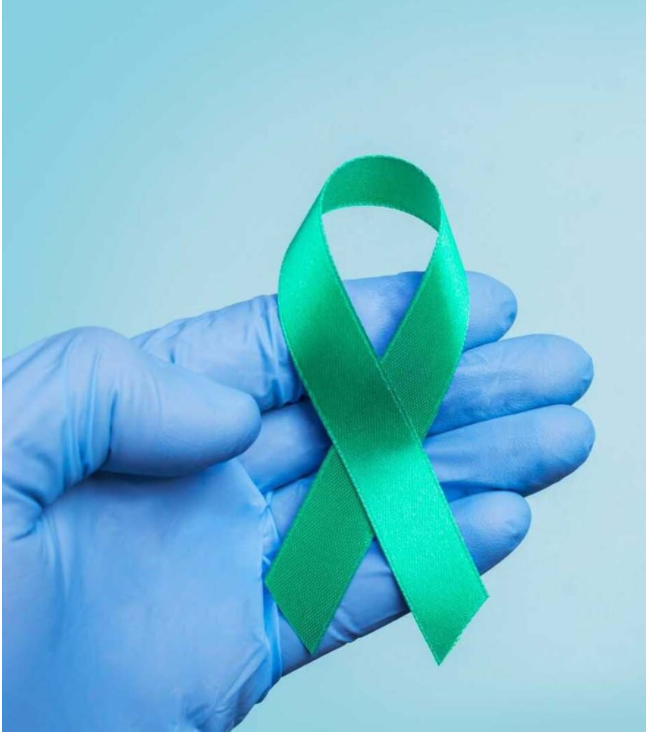
Polycystic Ovarian Syndrome Awareness Association and PCOS. Who we are, and what we do.
Who is PCOSAA and what is PCOS?
PCOS Awareness Association is a non-profit organization that advocates for Polycystic Ovarian Syndrome (PCOS) patients. The organization and its team of volunteers help raise awareness of this disorder worldwide. They do this by providing education and support services to help women understand what the disorder is and how to treat it. The Association also provides support for women diagnosed with PCOS to help them overcome the syndrome and decrease the impact of its associated health problems.

PCOS Awareness Association was founded in 2012 by Megan M Stewart and Satoya Foster, who were diagnosed with PCOS themselves and wanted to spread awareness and help others going through similar experiences. Megan Stewart began showing symptoms of PCOS at the age of 9 (hair, weight, lack of period, hair loss) but was not formally diagnosed until she was 16 when they also diagnosed her with Cervical Cancer. In 2009 she was admitted to the ER for massive abdominal pain due to PCOS. When leaving the ER her mother said she could tell Megan was fed up with feeling sick, being told it was all in her head, the weight gain and the hair loss. Megan started researching answers and searching for support but found that not one place had everything she was looking for. The timeline below tells the story of how the PCOS Awareness Association began.
What is PCOS?
Polycystic Ovary Syndrome, or PCOS, is a health condition that affects about 10 million women in the world. Polycystic Ovarian Syndrome (PCOS) is a hormonal disorder common among women of reproductive age. Women with PCOS may have infrequent or prolonged menstrual periods or excess male hormone (androgen) levels. The ovaries release an egg each month as part of a healthy menstrual cycle. With PCOS, the ovaries may develop numerous small collections of fluid (follicles) and fail to regularly release eggs.
Polycystic ovary syndrome (PCOS) is a health problem that affects 1 in 5 women of childbearing age. Most women find out they have PCOS in their 20s and 30s, when they have problems getting pregnant and see their doctor. But PCOS can happen at any age after puberty. Women of all races and ethnicities are at risk of PCOS. The risk of PCOS may be higher in case of obesity or in a case of if the mother, sister, or aunt historically had PCOS.

There could be a number of reasons why so few people have heard of PCOS, despite the fact that as many as 1 in 10 women are living with it. Some of the symptoms are embarrassing to talk about. Hirsutism, or the growth of excessive facial or body hair, is one of the tough side effects that women often deal with. The hair on their head may start to thin, while thicker strands sprout up in other unwanted places. Fast and seemingly uncontrollable weight gain is another hurdle that many with PCOS face, and the taboo surrounding these subjects may discourage them from bringing them up to their doctors — or anyone else.
What causes PCOS?
The exact cause is unknown, but it is a hormonal problem. Doctors believe genetics and environmental factors play a part in the development of PCOS. It is a leading cause of female infertility and is responsible for a number of symptoms that can affect the body physically and emotionally. Despite the name, many women do not have cysts on their ovaries. In 2013, an independent panel of experts recommended to the National Institutes of Health to change the name because it hinders patient care and research efforts. Hormones involved in PCOS include: Androgens, Insulin and Progesterone.

Many women don’t realize that their PCOS symptoms are related to this condition. It’s easy to brush off breakouts as adult acne or genetically oil skin, or to mistake irregular periods as a “no big deal” or a side effect of stress. Infertility is an easy-to-miss sign and many women only learn they have PCOS when they begin having difficulty getting pregnant. As a “syndrome,” PCOS manifests itself in different ways, making it difficult for doctors to diagnose in the first place. There are no specific tests for PCOS. Diagnoses are based on a series of tests, which could include a pelvic exam, an ultrasound, blood tests, or an analysis of symptoms. To keep track of your symptoms use The Agenda. App. Unsurprisingly, this confusing condition is easy to misdiagnose or to not diagnose at all.
Nutrition and exercise can help.
As of today, there is no cure for PCOS. There are many ways you can decrease or eliminate PCOS symptoms and feel better. Your doctor may offer different medicines to treat symptoms such as irregular periods, acne, excess hair, and elevated blood sugar. Fertility treatments are available to help women get pregnant. Losing as little as 5% of excess weight can help women ovulate more regularly and lessen other PCOS symptoms. The ideal way to do this is through nutrition and exercise.
It may feel difficult to lose excess weight and keep it off, but it is important to try. You help reduce the risk for developing serious health complications that will impact women with PCOS much sooner than women without PCOS. The biggest health concerns are diabetes, heart disease, and stroke; PCOS is linked to high blood pressure, pre-diabetes, and high cholesterol.
Connect with PCOSAA to learn even more and find out how you can take action!




